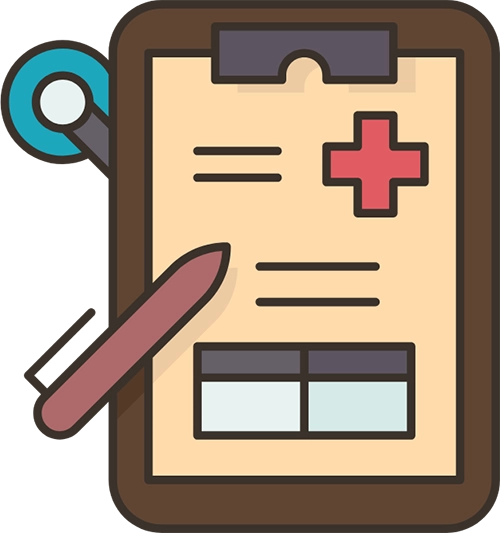Post discharge wound care is vital for ensuring proper healing and avoiding complications after leaving the hospital. Whether you’re recovering from surgery, managing a chronic condition, or healing from an injury, taking the right steps to care for your wound can make a significant difference. By focusing on wound healing at home, following your doctor’s instructions, and avoiding common mistakes, you can promote faster recovery and reduce the risk of infection. Below are 10 essential tips for managing post-discharge wound care effectively and safely.
1. Follow Your Post Discharge Wound Care Plan
The foundation of effective post-discharge wound care lies in adhering to the guidelines provided by your healthcare provider. These instructions are tailored to your specific needs and may include wound cleaning protocols, dressing schedules, and medication requirements. Ignoring or altering these recommendations can delay wound healing at home and lead to complications. If anything seems unclear, consult your doctor for clarification.
2. Keep the Wound Clean and Hygienic
Maintaining a clean wound environment is critical. Always wash your hands thoroughly before and after touching the wound or changing dressings. Use the cleaning solutions recommended by your doctor to gently cleanse the area, removing debris or fluid buildup. After cleaning, ensure the wound is completely dry before reapplying a new dressing to create an optimal environment for healing. Proper hygiene is a cornerstone of post-surgery wound management.

3. Stick to a Regular Dressing Change Schedule
Changing your wound dressing as directed by your doctor is one of the most important aspects of wound healing at home. Dressings protect the wound from dirt, bacteria, and further injury while promoting healing. Use sterile materials and avoid reusing supplies. Consistent dressing changes also give you an opportunity to inspect the wound for any signs of infection or complications.
4. Watch for Signs of Infection
Early detection of infection can prevent serious complications. Keep an eye out for redness, swelling, warmth, increased pain, or a foul odor around the wound. Discharge, such as pus, may also signal infection. If you notice these symptoms, contact your healthcare provider immediately. Post-discharge wound care should include daily inspections to ensure the wound is healing as expected.
5. Manage Pain Properly
Post-surgery wound management often involves addressing pain. Pain can interfere with your ability to perform daily care tasks, so it’s important to manage it effectively. Use prescribed or over-the-counter medications as directed by your doctor. Never exceed recommended doses, and let your healthcare provider know if the pain worsens or becomes unmanageable.
6. Eat a Healing-Focused Diet
Nutrition plays a crucial role in wound healing at home. Include protein-rich foods to support tissue repair, and focus on vitamins like C and zinc to boost your immune system. Stay hydrated, as fluids help flush toxins from your body and maintain skin elasticity. A well-balanced diet is essential for creating the conditions your body needs to heal effectively.
7. Avoid Strain on the Wound
Protecting the wound from unnecessary pressure or strain is vital for post-surgery wound management. Avoid activities that involve heavy lifting, stretching, or repetitive motions that could disrupt the healing process. If the wound is located on a joint, try to minimize movement in that area and follow any physical therapy recommendations provided by your care team.
8. Keep Follow-Up Appointments
Your follow-up appointments are an integral part of post-discharge wound care. These visits allow your healthcare provider to evaluate your progress, adjust your treatment plan, and address any concerns you may have. Skipping these appointments can delay recovery and increase the risk of complications.
9. Educate Yourself and Your Caregiver
Understanding the basics of wound care is empowering and ensures you can handle day-to-day tasks confidently. Learn about your wound type, the stages of healing, and proper cleaning and dressing techniques. If a family member or caregiver is assisting you, make sure they are equally knowledgeable. Education is key to ensuring consistent and effective post-surgery wound management.
10. Consider Mobile Wound Care Services for Extra Support
For patients who have limited mobility or complex wounds, mobile wound care services can be a game-changer. These professionals bring expert care directly to your home, assisting with cleaning, dressing changes, and monitoring for infection. Mobile services are particularly beneficial for post-surgery wound management or chronic wound care, ensuring consistent treatment without the need for travel.
At Windy City Wound Care, our mission is to improve healing outcomes and enhance quality of life for patients while supporting the healthcare providers who care for them. By combining expert care, advanced techniques, and compassionate service, we’re redefining wound care in Chicago.
If you’re ready to partner with a team that delivers exceptional results, contact us today. Referrals are simple, and our dedicated team is here to guide you through every step of the process.
Become a Patient or Refer a New Patient
Getting started with Windy City Wound Care is simple:
- Visit our website at www.WindyCityWoundCare.com.
- Fax referrals to 844-333-1773.
- Call us directly at 708-497-9850 for more information or assistance.



